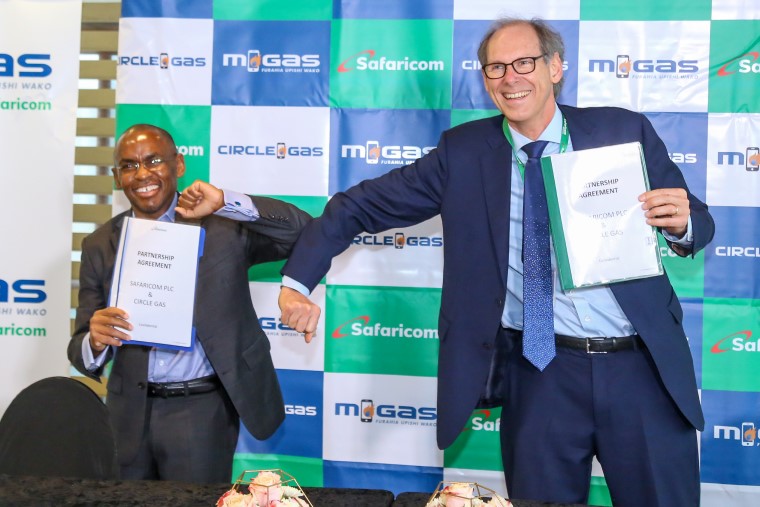Circle Gas Limited, the smart LPG distributor backed by Safaricom, continues to post heavy losses, even as it expands its footprint in Kenya and accelerates its efforts to digitize clean energy access.
The company’s latest financial disclosures reveal a worsening negative equity position, raising questions about its ability to achieve profitability.In December 2019, Safaricom acquired an 18.96% stake in Circle Gas for KSh 385 million.The deal supported Safaricom’s strategy to expand into digital services using IoT and M-Pesa to deliver essential utilities.
Following a debt-for-equity conversion by Circle Gas in 2022, Safaricom’s stake fell to 14.65%. Then in April 2024, Safaricom increased its commitment by converting a KSh 2.42 billion shareholder loan into equity, receiving 932 new shares.
While Safaricom has fully impaired the value of its investment, it retains significant influence through board representation, technical collaboration, and M-Pesa integration in Circle Gas’ pay-as-you-cook model.
Audited summaries show the following:
FY2023: Revenue rose to KSh 2.57 billion, more than double the KSh 1.09 billion recorded in FY2022. However, expenses ballooned to KSh 9.34 billion, leading to a loss after tax of KSh 6.41 billion, up from KSh 4.43 billion the previous year.FY2022: The company reported a loss of KSh 4.43 billion, with revenue at KSh 1.09 billion and expenses at KSh 5.54 billion.As of 31 December 2023, accumulated negative equity stood at KSh 14.17 billion, a significant increase from KSh 6.18 billion in 2022.
The capital erosion stems from ongoing expansion, R&D spending, and heavy investment in technology across the LPG value chain.
Balance Sheet Snapshot (As at December 31, 2023)
Total assets: KSh 11.21 billionCurrent liabilities: KSh 7.18 billionNon-current liabilities: KSh 18.20 billionEquity: KSh -14.17 billion
Even with the deteriorating equity position, total assets grew. This reflects the company’s ongoing investments in smart meters, infrastructure, and operations.


